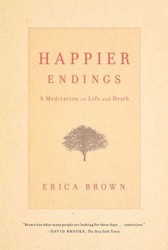Be it the loss of a loved one through death, through a breakup, loss of a job, or perfect health, we all experience losses, and the pain may seem more than we can bear at times. But loss and grief are natural, transformative parts of the human condition, and always have been, since biblical times. It’s through the earliest Bible stories— the stories of Cain and Abel, of Jonah, of Job, of Israelites wandering through the desert — that Rabbi Mel Glazer begins to help readers through the hard work of healing. It takes time to heal from a devastating loss, but it’s important to create a “new normal,” a new way of being once the mourning process is over. And there’s nothing preventing us from trying to make that new normal even better than the old normal, contends Glazer, a certified grief counselor.
Although the Bible stories serve as a jumping off point, Glazer provides many powerful anecdotes from contemporary times and from his own life, too. Be forewarned that some of these stories are even more tragic than the Biblical ones. Like the author’s friend, Rabbi Kenny Berger, who had written a moving sermon in 1988 on what the Challenger astronauts might have been thinking in those last five minutes of life when they knew they’d die in the shuttle explosion. Berger’s sermon focused on “If only” statements, like “If only I had another chance, then I would do it better.” The sermon was quoted in print and by rabbis of almost 1,000 congregations nationwide. Shortly after delivering his sermon, Rabbi Berger and his wife died in plane crash. He was 41 and had just been offered a lifetime contract by his synagogue. The author places that story in a chapter called “Death is a Part of Life.” Everyone has a mission in life, whether or not we’re consciously aware of it. Perhaps writing that sermon was Rabbi Berger’s life mission, the author suggests.
Other issues covered include bargaining and prayer, shock and anger, ritual, fear, wandering, forgiveness, joy, growth, and legacy. The book is non-denominational, written with tenderness, and a potential godsend to anyone who must deal with loss, even if the loss happened years ago.





